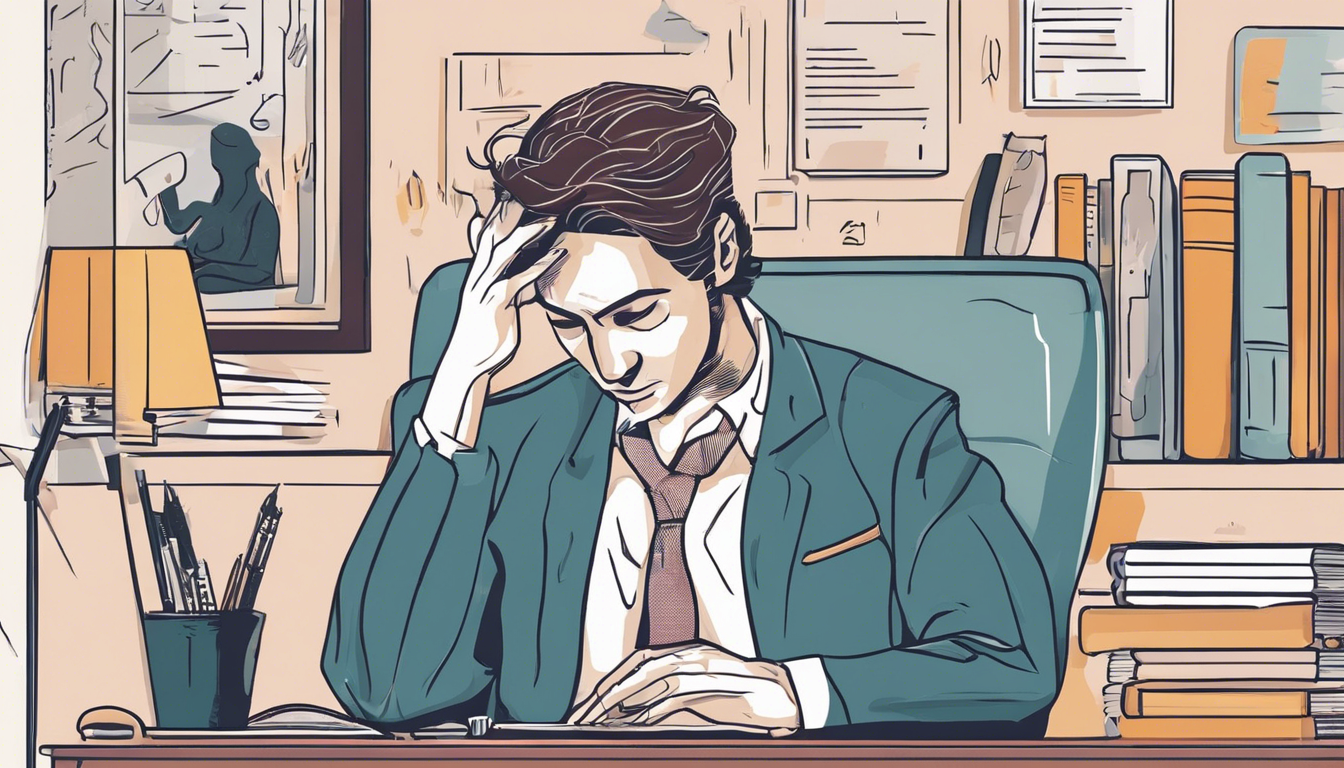In an era where crises seem to loom at every corner, understanding how to cope with stress and anxiety becomes crucial. The ability to stay positive and manage one’s mental health is not just beneficial but necessary for navigating through times of uncertainty. With the rise of mental health issues, including suicidal thoughts, it has become imperative to address these challenges head-on, providing strategies to reduce stress and foster resilience. Learning how to effectively deal with stress and anxiety can not only improve one’s quality of life but also offer a beacon of hope to those who may feel they are in a never-ending struggle.
This article will explore various aspects of coping with stress and anxiety during crises, starting with an understanding of these emotions in times of uncertainty. It will then delve into effective strategies for managing stress and anxiety, highlighting the importance of connecting with others for support. Additionally, it will present tools and techniques for immediate relief, such as reaching out to a crisis hotline when needed. By offering a comprehensive guide on how to remain resilient, this article aims to equip readers with the knowledge to navigate through challenging times, emphasizing the importance of mental health and well-being.
Understanding Anxiety and Stress in Times of Uncertainty
Defining Anxiety and Stress
Stress and anxiety, prevalent issues affecting individuals regardless of age, background, or lifestyle, manifest as physical, emotional, or mental tension. Stress is a natural response to challenges or demands, while anxiety is characterized by fear, worry, or unease about uncertain outcomes 7. Understanding these conditions is crucial for effective management and support 7.
The Impact of Global Crises on Mental Health
Global crises, such as pandemics or economic downturns, significantly impact mental health, exacerbating stress and anxiety. These events can lead to increased feelings of uncertainty and powerlessness, draining emotional resources and potentially leading to chronic worrying, which is ineffective in controlling uncontrollable events 94. The economic implications can also lead to severe mental health issues, including depression and anxiety due to job insecurity 4.
Recognizing the Signs of Stress and Anxiety
Identifying signs of stress and anxiety involves observing various symptoms. Physical indicators may include headaches, muscle tension, fatigue, rapid heartbeat, or gastrointestinal problems. Emotional symptoms often encompass feelings of overwhelm, persistent worry, or dread. Behavioral changes might present as avoidance of activities, increased substance use, or changes in eating and sleeping habits 7. Recognizing these signs in oneself or others is the first step toward seeking help and managing these conditions more effectively 7.
Effective Strategies for Managing Stress and Anxiety
The Importance of Flexibility and Positivity
Embracing flexibility in one’s thinking and beliefs can significantly enhance one’s ability to manage stress and anxiety. Cultivating a flexible mindset helps individuals adapt to changes and challenges with resilience, promoting a positive outlook on life 1011. This flexibility in spirit and beliefs fosters acceptance and tolerance, which are crucial for maintaining harmony in relationships and communities 10. Additionally, being open to new experiences and perspectives can lead to a more fulfilling life 11.
Self-Care as a Priority: Nutrition, Sleep, and Exercise
Prioritizing self-care is essential for managing stress and anxiety effectively. Engaging in regular physical activity, ensuring adequate sleep, and maintaining a balanced diet are foundational elements that support both mental and physical health 131415. Exercise not only improves physical health but also boosts mental well-being by reducing anxiety and enhancing mood 14. Similarly, a healthy diet influences neurotransmitter production, which plays a significant role in mood regulation 14. Adequate sleep is crucial for cognitive function and overall health, helping to mitigate the effects of stress 15.
Creative Outlets and Physical Activity for Stress Reduction
Incorporating creative activities and physical exercise into daily routines can be a powerful strategy for alleviating stress. Creative expressions such as painting, writing, and music have been shown to reduce stress and improve mental health by fostering a sense of accomplishment and relaxation 1618. Engaging in physical activities like yoga or dance not only keeps the body healthy but also helps in reducing inflammation and stress 16. These activities provide valuable outlets for emotional expression and are essential for maintaining well-being in stressful times 1718.
Connecting with Others for Support
The Role of Social Support in Coping with Stress
Social support plays a pivotal role in enhancing resilience to stress and protecting against trauma-related psychopathology such as PTSD. It can significantly reduce medical morbidity and mortality by providing emotional and practical assistance through a network of family, friends, and community members 19. The perception of being valued and receiving advice from others has proven crucial in preventing the development of PTSD among survivors of childhood sexual abuse 19.
Professional Help: Knowing When to Seek It
It is crucial to seek professional help when anxiety interferes with personal or professional relationships, creates persistent sleep issues, affects your ability to concentrate, or stops you from enjoying life. Professional counselors and mental health therapists are trained to help cope with emotional stress and improve functionality in day-to-day activities 2324. If anxiety leads to physical symptoms like digestive issues or chronic pain, or if it fosters suicidal thoughts, professional intervention becomes even more critical 23.
Virtual Communities and Support Groups
Online communities and support groups offer a platform for individuals suffering from mental health issues to connect and share their experiences. These peer-to-peer communities provide a safe and supportive environment for discussing personal journeys and challenges related to anxiety and depression. While they are valuable, it’s important to remember that they are not a substitute for professional mental health treatment. Engaging with these groups can help alleviate feelings of isolation and provide emotional support, but one should also consider seeking professional advice when needed 2526.
Tools and Techniques for Immediate Relief
Breathing Exercises and Mindfulness
Breathing exercises are a cornerstone of stress reduction, with techniques such as diaphragmatic breathing helping to enhance oxygen supply and potentially lowering blood pressure 28. Engaging in deep breathing not only aids in relaxation but also assists in managing conditions like anxiety and stress by allowing more air into the lungs, thereby promoting a sense of calm 30.
Guided Meditation and Relaxation Apps
Technology offers a variety of apps that facilitate meditation and relaxation, making these practices more accessible. Apps like Calm and Headspace provide structured meditation sessions that can be tailored to individual needs, helping to reduce symptoms of anxiety and depression 3132. These tools are particularly beneficial for those new to meditation, offering guided sessions that help users develop a regular practice 31.
Setting Boundaries with Media Consumption
Setting boundaries around media consumption is crucial for mental well-being. Limiting time spent on social media and using features like “Do Not Disturb” can significantly reduce stress and prevent burnout 3435. By consciously managing technology use, individuals can maintain a healthier balance, ensuring that technology serves as a tool for well-being rather than a source of constant distraction 3435.
Conclusion
Navigating through times of crisis with resilience and hope necessitates a comprehensive understanding of stress and anxiety, coupled with the implementation of effective coping strategies. Throughout this article, we’ve emphasized the pivotal role of engaging in self-care practices, cultivating a flexible mindset, and harnessing the power of social support to manage these emotional challenges. The significance of professional help and the therapeutic potential of creative outlets and physical activities have also been underscored, offering readers a pathway to improved mental health and well-being amidst uncertainty.
As we conclude, it’s clear that the journey toward managing stress and anxiety in times of crisis is both personal and collective, requiring a blend of self-awareness, community support, and professional guidance. Embracing the strategies and insights shared in this discussion can empower individuals to navigate these turbulent times with strength and resilience. Moreover, the broader implications of this discourse highlight the ongoing need for societal acknowledgment and support for mental health, encouraging a continued dialogue on these vital issues.
FAQs
1. What are some effective ways to handle severe stress and anxiety? To manage extreme stress and anxiety, it’s beneficial to share your feelings with someone you trust, whether it’s a friend, a family member, or a professional therapist. Engaging in acts of forgiveness, either towards yourself or others, can also help you accept and move past stressful situations instead of dwelling on things beyond your control.
2. Can you explain the 3-3-3 rule used to manage anxiety? The 3-3-3 rule is a simple technique to help cope with anxiety as it arises. When you feel anxious, look around and name three objects you see, listen for three sounds you can hear, and move three different parts of your body. This method helps many people ground themselves and regain focus during moments of anxiety.
3. What strategies can help manage anxiety in times of crisis? During a crisis, managing anxiety can involve several key actions: Shift your perspective to view challenges as opportunities for growth; incorporate regular physical activity into your routine; focus on deep, calming breathing; maintain a healthy diet; and ensure you get adequate sleep. These steps can help reduce your stress and anxiety levels significantly.
4. What are the 4 A’s of stress management? The four A’s of stress management include: Avoid, Alter, Accept, and Adapt. By learning to avoid unnecessary stress, alter situations that can be changed, accept things that cannot be changed, and adapt to new circumstances, you can effectively manage and reduce your stress levels.

